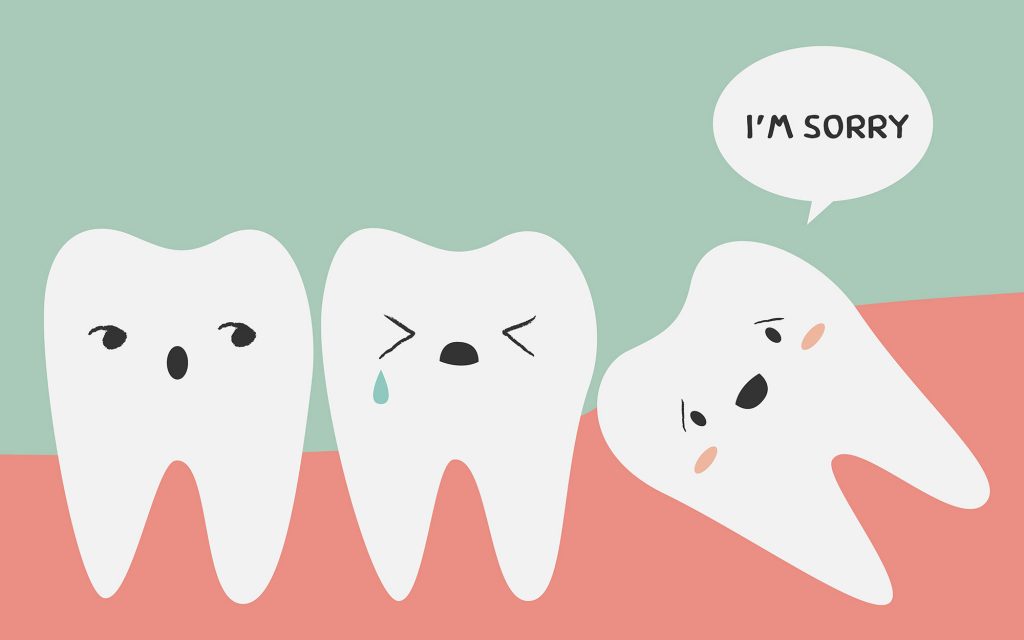You may be wondering if you have an impacted tooth. If you do, it can cause a lot of problems for your other teeth. Including twisting them, crowding them, or pushing them- altering them in many ways. This can affect your smile and the health of your teeth, or even damage your self-esteem over time.
If you suspect that you have an impacted tooth, you should contact an orthodontist. Orthodontics Limited can assist you in straightening out your smile and giving you your confidence back. Their team is made up of qualified professionals who specialize in orthodontics treatments- you can be assured that you are receiving the best possible care.
What is an Impacted Tooth?
To start with, you should know exactly what an impacted tooth is. In dental orthodontics, an impacted tooth is one that was blocked from erupting, or emerging, when it was expected to. A tooth may not erupt if it does not have enough room or started to come out in the wrong direction. Sometimes it is caused by genetics- other times it happens for seemingly no reason.
Wisdom teeth are commonly impacted in young adults or older teens, but any tooth has the chance to be impacted.
Children and Impacted Teeth
Children are more likely to get an impacted tooth while their adult teeth are growing in. A permanent tooth may be struggling to erupt or can become trapped under a baby tooth that never fell out. Sometimes, their adult teeth can erupt in the wrong place or push on the roots of nearby teeth.
Children also may experience crowding in their mouths from impacted teeth and may find eating difficult. If you notice your child is having difficulty chewing, visiting a dentist to find the underlying problem is your best bet. Misaligned teeth can affect a child’s sense of self-esteem, plus it is easier to fix oral issues while a child is young.
Fixing an Impacted Tooth
Fixing your impacted tooth could be simple, or complicated. Everyone’s oral situation is unique and impacted teeth can affect a lot of other teeth in your mouth. For example, removing a baby tooth can fix an impacted tooth blocked by it- a quick fix.
However, if your jaw is too narrow to fit your teeth, it may need to be expanded to make more room. More serious issues could require surgery or orthodontic treatment to fix the problem. Receiving your treatment before the issue grows is important- a specialist can be sure to stop any damages an impacted tooth is causing in your mouth.
Detect Problems Early
Detecting your impacted tooth early can save you a lot of time and money. It is easier for a dental orthodontist to correct the issue before it develops and causes more harm. The American Association of Orthodontists (AAO) recommends children seen an orthodontist specialist before they turn 7. This way, they can catch any problems before they start wreaking havoc in your child’s mouth.
But, adults must get an orthodontic check-up too if they feel like something is going wrong with their teeth- it is still better to detect problems earlier than later.
If you need an orthodontist in Philadelphia, set up an appointment with Orthodontics Limited. They can catch any impacted teeth problems before they escalate while providing quality orthodontics care and treatments.
Do I Need a Referral?
Not always, some impacted teeth can be easily fixed. Your dentist may remove them or refer you to a specialist. You do not need a referral to see an orthodontist, but you may be given one.
The first consultation is sometimes free and the orthodontics specialist will provide you with all the information you need about any treatments. Use this time to ask questions and prepare yourself for what you need done.
Wisdom Tooth Removal
Wisdom teeth are commonly impacted. There are many cases of wisdom teeth needing to be removed in older teens and young adults. If a problem is found, the wisdom tooth may need to be removed. Your specialist will discuss options with you and what you can expect from treatment.
In some cases, only part of the wisdom will be removed. Other times, the whole tooth will be removed. If the wisdom tooth does not seem to be causing problems, your specialist will request that they keep it under review.
This often requires an X-ray and general check-up. If problems start to arise later, the orthodontist will discuss treatment options with you.
Signs of Impacted Tooth
There are many symptoms of impacted teeth. If you suspect an impacted tooth, but have no symptoms, still see an orthodontist. Some cases of impacted teeth show no symptoms until significant damage has been done to your teeth.
Here are common symptoms of impacted teeth for you to reference:
- Difficulty opening mouth
- Bad taste in mouth
- Bad breath
- Swollen gums, they may bleed
- Pain when opening mouth
- Pain when chewing or biting
- Pressure on teeth
Adults should keep tabs on their wisdom teeth and make an appointment if they experience these symptoms. Also, watch out for impacted canines in children, this tooth is the second most likely to become impacted after wisdom teeth.
Summary
If you suspect that you may have an impacted tooth, you will want to schedule an appointment with a dental orthodontist. Catching oral problems early can save your smile and make it easier for a specialist to help you.
Children are more likely to experience impacted teeth problems when they start losing their baby teeth. Baby teeth can block adult teeth from erupting, or they can erupt in the wrong place. Bringing your child to a check-up before the age of 7 is recommended.
So, if you feel that you need to have treatment for your impacted tooth, contact Orthodontics Limited and set-up an appointment. They can provide you with professional advice and treatment options when necessary. You can take comfort in knowing that qualified specialists are taking care of your oral health.



